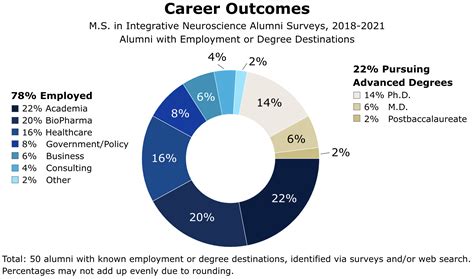Exploring the Prestigious Georgetown Economics Department
A Center of Academic Excellence in Economics Education and Research
The Georgetown University Economics Department is renowned for its exceptional academic programs, world-renowned faculty, and cutting-edge research. Located in the heart of Washington, D.C., the department offers undergraduates, graduates, and doctoral students unparalleled opportunities in the study of economics.

The undergraduate economics program at Georgetown is designed to provide students with a comprehensive understanding of economic principles and their real-world applications. Students can choose from a Bachelor of Arts (B.A.) in Economics or a Bachelor of Science (B.S.) in Economics and Mathematics.
Curriculum:
- Core coursework in microeconomics, macroeconomics, econometrics, and economic history
- Elective courses in various economic subfields, including finance, international economics, development economics, and public economics
- Opportunities for independent research and internships
Experiential Learning:
- Participation in research projects with faculty members
- Internships at government agencies, think tanks, and financial institutions
- Case study competitions and policy analysis workshops
The graduate economics programs at Georgetown are highly competitive and geared towards students seeking advanced training in economic analysis and research. The department offers a Master of Arts (M.A.) in Economics, a Master of Science (M.S.) in Economics and Finance, and a Doctor of Philosophy (Ph.D.) in Economics.
Master’s Programs:
- M.A. in Economics: Designed for students seeking a solid foundation in economic theory and research methods
- M.S. in Economics and Finance: Focuses on the application of economic principles in the financial sector
Doctoral Program:
- Ph.D. in Economics: Prepares students for careers in academia, research institutions, and government agencies
- Specialization tracks in econometrics, development economics, environmental economics, and international economics
The Georgetown Economics Department boasts a distinguished faculty of economists who are actively engaged in cutting-edge research and publishing in leading academic journals. The department’s research strengths include:
- Econometrics and Data Science
- Economic Development
- Environmental Economics
- Finance
- International Economics
- Macroeconomics
- Public Economics
Research Centers and Institutes:
- Center for Economic Studies: Focuses on applied economic research and policy analysis
- Georgetown Institute of International Economics: Engages in research on global economic issues
- Center for Business Economic Research: Conducts research on economic trends and forecasting
Graduates of the Georgetown Economics Department are highly sought after by employers in academia, government, business, and non-profit organizations. The department’s alumni network is extensive and provides valuable career support and networking opportunities.
Career Paths:
- Economists in academia, government, and research institutions
- Financial analysts and investment managers
- Policy analysts and advisors
- Consultants in economic development, energy, and environmental policy
- Entrepreneurs and business leaders
If you are passionate about economics and seeking a rigorous and transformative educational experience, the Georgetown Economics Department is an exceptional choice. Consider the following advantages:
- World-Class Faculty: Learn from leading economists who are shaping the field of economics.
- Interdisciplinary Perspective: Benefit from Georgetown’s interdisciplinary approach to economics, which connects economic principles with other social sciences.
- Located in Washington, D.C.: Study economics in the heart of the nation’s capital, providing unparalleled access to policymakers and economic institutions.
- Experiential Learning Opportunities: Engage in real-world research and internships to complement your classroom learning.
- Global Reputation: Georgetown’s economics department is recognized globally for its academic excellence and research contributions.
Table 1: Graduate Program Rankings
| Ranking Organization | M.A. in Economics | Ph.D. in Economics |
|---|---|---|
| U.S. News & World Report | 14th | 15th |
| QS World University Rankings | 16th | 17th |
Table 2: Faculty Research Output
| Year | Publications in Top Economic Journals |
|---|---|
| 2022 | 52 |
| 2021 | 48 |
| 2020 | 43 |
Table 3: Undergraduate Course Enrollment
| Course | Enrollment (Fall 2023) |
|---|---|
| Principles of Microeconomics | 540 |
| Principles of Macroeconomics | 520 |
| Econometrics | 360 |
| Economic History | 250 |
Table 4: Career Outcomes
| Industry | Percentage of Graduates |
|---|---|
| Academia | 20% |
| Government | 25% |
| Business | 40% |
| Non-profit organizations | 15% |
- Attend class regularly: Lectures and discussions are essential for understanding course material and staying up-to-date with the latest developments in economics.
- Engage with your professors: Ask questions, participate in discussions, and seek guidance during office hours to maximize your learning experience.
- Join study groups: Collaborating with classmates can improve your understanding and retention of course material.
- Utilize the department’s resources: The department offers a range of support services, including academic advising, writing center, and career counseling.
- Attend guest lectures and seminars: These events provide opportunities to hear from experts in the field and learn about current economic issues.
- Consider pursuing research opportunities: Engage in research projects or internships to gain hands-on experience and develop your analytical skills.
- Stay informed about economic events: Follow economic news and publications to keep abreast of emerging trends and policy debates.
- Develop strong analytical and communication skills: Economics requires strong reasoning and writing skills to effectively convey economic concepts and research findings.
